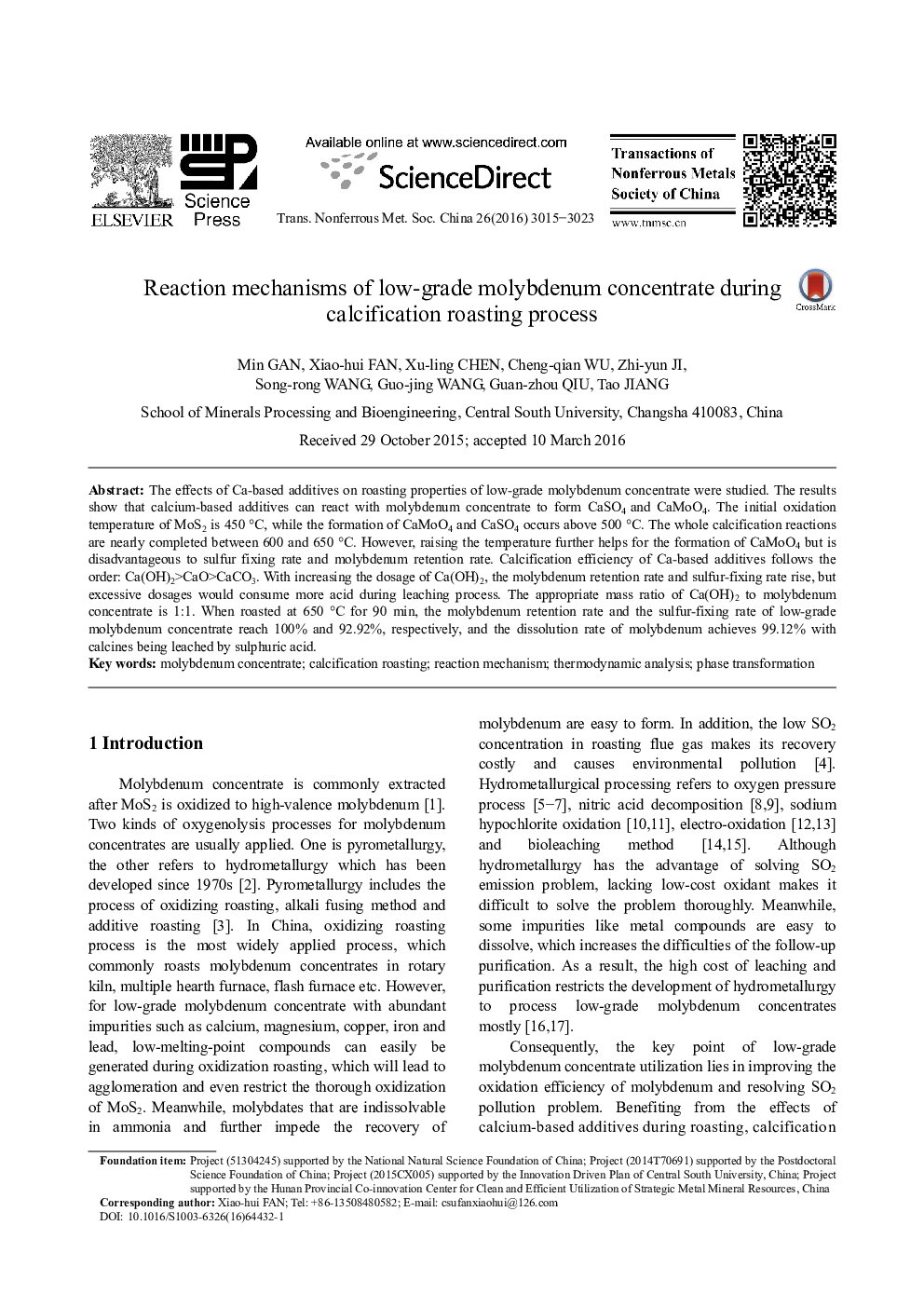| Article ID | Journal | Published Year | Pages | File Type |
|---|---|---|---|---|
| 8012184 | Transactions of Nonferrous Metals Society of China | 2016 | 9 Pages |
Abstract
The effects of Ca-based additives on roasting properties of low-grade molybdenum concentrate were studied. The results show that calcium-based additives can react with molybdenum concentrate to form CaSO4 and CaMoO4. The initial oxidation temperature of MoS2 is 450 °C, while the formation of CaMoO4 and CaSO4 occurs above 500 °C. The whole calcification reactions are nearly completed between 600 and 650 °C. However, raising the temperature further helps for the formation of CaMoO4 but is disadvantageous to sulfur fixing rate and molybdenum retention rate. Calcification efficiency of Ca-based additives follows the order: Ca(OH)2>CaO>CaCO3. With increasing the dosage of Ca(OH)2, the molybdenum retention rate and sulfur-fixing rate rise, but excessive dosages would consume more acid during leaching process. The appropriate mass ratio of Ca(OH)2 to molybdenum concentrate is 1:1. When roasted at 650 °C for 90 min, the molybdenum retention rate and the sulfur-fixing rate of low-grade molybdenum concentrate reach 100% and 92.92%, respectively, and the dissolution rate of molybdenum achieves 99.12% with calcines being leached by sulphuric acid.
Related Topics
Physical Sciences and Engineering
Materials Science
Metals and Alloys
Authors
Min GAN, Xiao-hui FAN, Xu-ling CHEN, Cheng-qian WU, Zhi-yun JI, Song-rong WANG, Guo-jing WANG, Guan-zhou QIU, Tao JIANG,
